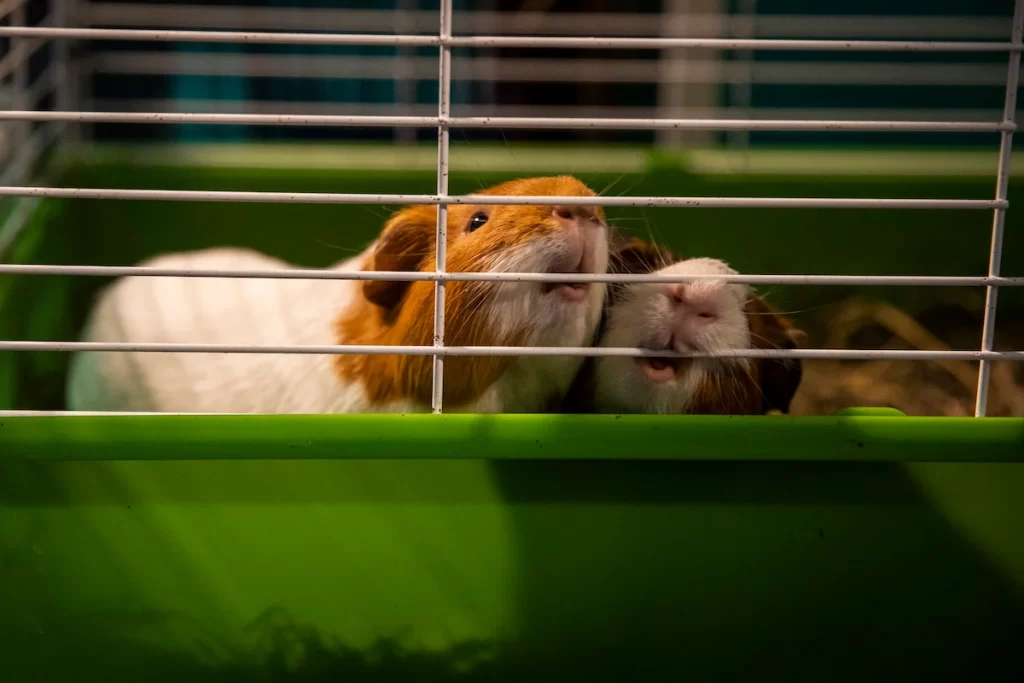Guinea pigs are popular pets that are often referred to as ‘cavies’. They are social animals and thrive in the company of other guinea pigs. These small, cuddly, and cute creatures come in different breeds and colors. They are also known to be gentle and easy to care for, which makes them a popular choice for pet owners.
Like any other animals, guinea pigs are prone to health issues, including reproductive problems. In this article, we will discuss the common reproductive problems in guinea pigs, their causes, symptoms, and treatment options.

Common Reproductive Problems in Guinea Pigs
Ovarian Cysts
Ovarian cysts are a common reproductive problem in female guinea pigs. It is a fluid-filled sac that forms in the ovary and can grow to a significant size. Ovarian cysts can be benign or malignant, and they can cause discomfort, pain, and even death if left untreated.
The cause of ovarian cysts in guinea pigs is not entirely clear, but it is believed to be linked to hormonal imbalances. Symptoms of ovarian cysts include abdominal swelling, loss of appetite, lethargy, and irritability. Treatment options for ovarian cysts include surgery, hormone therapy, or a combination of both.
Pyometra
Pyometra is a bacterial infection that affects the uterus of female guinea pigs. It is a severe condition that can be life-threatening if not treated promptly. Pyometra is usually caused by a bacterial infection that travels up the reproductive tract and infects the uterus.
Symptoms of pyometra include loss of appetite, lethargy, vaginal discharge, and abdominal pain. If left untreated, pyometra can lead to sepsis, kidney failure, and death. Treatment options for pyometra include antibiotics, surgery to remove the infected uterus, or a combination of both.

Dystocia
Dystocia is a condition that occurs when a female guinea pig has difficulty giving birth. It is a common reproductive problem in guinea pigs and can be caused by various factors, such as a small birth canal, oversized babies, or malposition of the fetus.
Symptoms of dystocia include prolonged labor, straining, and discomfort. Dystocia can be dangerous for both the mother and the babies and can lead to death if not treated promptly. Treatment options for dystocia include manual repositioning of the fetus, administration of oxytocin to stimulate contractions, or a C-section.
Testicular Tumors
Testicular tumors are a common reproductive problem in male guinea pigs. It is a mass that forms in the testicles and can be benign or malignant. Testicular tumors can cause discomfort, pain, and even death if left untreated.
The cause of testicular tumors in guinea pigs is not entirely clear, but it is believed to be linked to hormonal imbalances. Symptoms of testicular tumors include swelling in the scrotum, lethargy, and irritability. Treatment options for testicular tumors include surgery to remove the affected testicle, chemotherapy, or a combination of both.
Prostate Problems
Prostate problems are a common reproductive problem in male guinea pigs. It is a condition that affects the prostate gland and can cause discomfort, pain, and even death if left untreated.
The cause of prostate problems in guinea pigs is not entirely clear, but it is believed to be linked to hormonal imbalances. Symptoms of prostate problems include difficulty urinating, blood in the urine, and lethargy. Treatment options for prostate problems include medication to reduce inflammation and pain, or surgery to remove the affected gland.

Causes of Reproductive Problems in Guinea Pigs
Reproductive problems in guinea pigs can be caused by various factors, including:
- Hormonal Imbalances
Hormonal imbalances are a common cause of reproductive problems in guinea pigs. Hormonal imbalances can be caused by various factors, including genetics, age, diet, and stress.
- Bacterial Infections
Bacterial infections can cause various reproductive problems in guinea pigs, such as pyometra, uterine infections, and prostate infections.
- Tumors
Tumors can develop in the reproductive organs of guinea pigs, such as ovarian cysts, testicular tumors, and uterine tumors.
- Genetics
Some reproductive problems in guinea pigs, such as dystocia, can be caused by genetic factors.
- Environmental Factors
Environmental factors, such as stress, poor nutrition, and unsanitary living conditions, can contribute to the development of reproductive problems in guinea pigs.